Recent Blog Posts
Are Assault and Battery Treated as Separate Charges in Illinois?
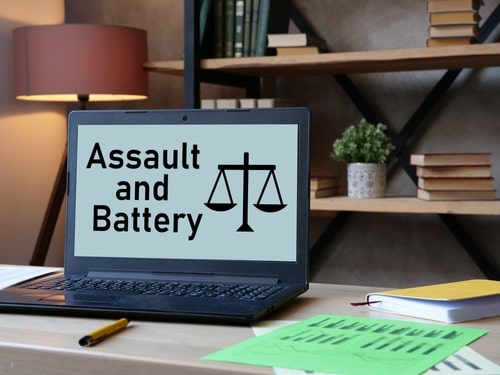 While assault and battery are two common terms often used together when discussing criminal charges, they are actually treated as two separate offenses in Illinois. Many people may not fully understand the differences between these two offenses. If you have been accused of these offenses or related crimes, an experienced attorney can provide guidance on how Illinois law will apply in your case and how you can defend against a conviction.
While assault and battery are two common terms often used together when discussing criminal charges, they are actually treated as two separate offenses in Illinois. Many people may not fully understand the differences between these two offenses. If you have been accused of these offenses or related crimes, an experienced attorney can provide guidance on how Illinois law will apply in your case and how you can defend against a conviction.
Defining Assault
In Illinois, assault is defined as a specific act that causes another person to reasonably believe that they will be subject to harmful or offensive contact. It is important to note that physical contact does not need to occur for an action to be considered assault.
Assault charges will generally involve the following elements:
Will a DUI Resulting in Injury Be Charged as a Felony in Illinois?
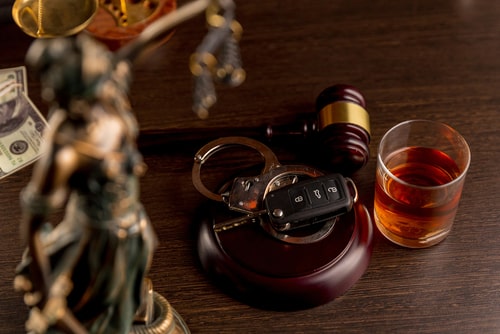 Driving under the influence (DUI) is a serious offense in Illinois. A person who is arrested for drunk or intoxicated driving and convicted on DUI charges will face numerous penalties, including the loss of their driver’s license, thousands of dollars in fines and court costs, the requirement to use an ignition interlock device when driving, and potential jail time, even for a first offense. However, when a DUI offense results in injury to another person, the consequences may become even more severe. For those who have been charged with DUI involving injuries to others, it is crucial to work with an attorney who can provide a strong defense during criminal proceedings.
Driving under the influence (DUI) is a serious offense in Illinois. A person who is arrested for drunk or intoxicated driving and convicted on DUI charges will face numerous penalties, including the loss of their driver’s license, thousands of dollars in fines and court costs, the requirement to use an ignition interlock device when driving, and potential jail time, even for a first offense. However, when a DUI offense results in injury to another person, the consequences may become even more severe. For those who have been charged with DUI involving injuries to others, it is crucial to work with an attorney who can provide a strong defense during criminal proceedings.
Felony vs. Misdemeanor DUI
In general, felonies are more serious crimes than misdemeanors, and they carry harsher penalties, including prison sentences of one year or more. Misdemeanors typically carry less severe punishments, including sentences ranging from a few days to less than one year. In Illinois, first-time and second-time DUI cases will usually be prosecuted as misdemeanors. However, when certain circumstances are present, aggravated DUI charges may apply, and a person may face felony charges.
When Can I Expunge or Seal My Criminal Record in Illinois?
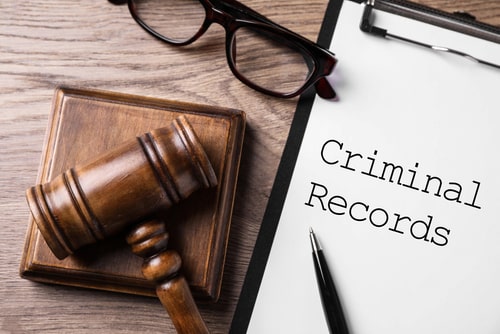 If you have been arrested, charged with a crime, or convicted of a misdemeanor or felony offense, you may have a criminal record that can cause a great deal of difficulty in your life. Arrests, convictions, or other related information may show up in criminal background checks, affecting your ability to obtain a job or secure housing. Other areas of your life may also be affected, such as your ability to receive government benefits or pursue education. If you are dealing with records related to previous brushes with the law, you may be wondering if there is any way to clear your name and start fresh.
If you have been arrested, charged with a crime, or convicted of a misdemeanor or felony offense, you may have a criminal record that can cause a great deal of difficulty in your life. Arrests, convictions, or other related information may show up in criminal background checks, affecting your ability to obtain a job or secure housing. Other areas of your life may also be affected, such as your ability to receive government benefits or pursue education. If you are dealing with records related to previous brushes with the law, you may be wondering if there is any way to clear your name and start fresh.
Fortunately, the state of Illinois offers options to seal or expunge criminal records in certain cases. Doing so can provide many benefits, including improved job prospects, housing opportunities, and peace of mind. An experienced attorney can help you determine your options for addressing your criminal record and receiving the fresh start you deserve.
When Can Drug Possession Lead to Felony Charges in Illinois?
 Drug possession is a serious offense that can have long-lasting consequences. In the state of Illinois, drug possession charges can range from misdemeanors to felonies. There are various factors that can affect the severity of drug charges, such as the type and amount of drugs involved, the intent to sell or distribute drugs to others, and a person’s prior criminal record. If you have been arrested for drug possession, an experienced attorney can provide you with legal representation and help you understand your options for defense.
Drug possession is a serious offense that can have long-lasting consequences. In the state of Illinois, drug possession charges can range from misdemeanors to felonies. There are various factors that can affect the severity of drug charges, such as the type and amount of drugs involved, the intent to sell or distribute drugs to others, and a person’s prior criminal record. If you have been arrested for drug possession, an experienced attorney can provide you with legal representation and help you understand your options for defense.
Misdemeanor vs. Felony
In Illinois, drug possession offenses are typically classified as felonies, although there are certain situations where misdemeanor charges may apply. Misdemeanors are less serious crimes and generally carry lighter penalties than felonies. Felonies, on the other hand, are more severe offenses with consequences that include prison sentences of one year or more and fines of up to $25,000.
Preparing for Your Illinois License Reinstatement Hearing
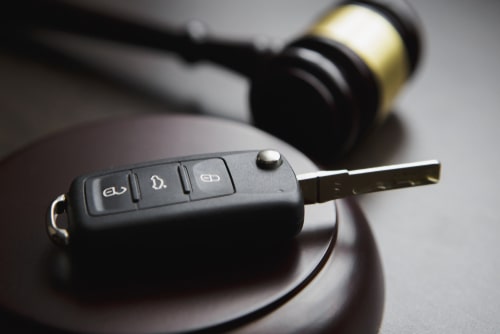 An Illinois license reinstatement hearing is a crucial step in regaining your driving privileges after a suspension or revocation. Understanding what takes place during the hearing and the significance of having legal representation can greatly impact the outcome of the hearing. If your license has been suspended as a result of multiple DUI convictions, obtain legal representation from a qualified attorney ready to safeguard your interests. While hiring a lawyer does not guarantee your license will be reinstated, it does ensure that you will have a fair chance at reobtaining your driving privileges.
An Illinois license reinstatement hearing is a crucial step in regaining your driving privileges after a suspension or revocation. Understanding what takes place during the hearing and the significance of having legal representation can greatly impact the outcome of the hearing. If your license has been suspended as a result of multiple DUI convictions, obtain legal representation from a qualified attorney ready to safeguard your interests. While hiring a lawyer does not guarantee your license will be reinstated, it does ensure that you will have a fair chance at reobtaining your driving privileges.
The Hearing Process
During an Illinois license reinstatement hearing, a hearing officer from the Secretary of State’s office will evaluate your case. The hearing officer will review your driving record, the reason for your license suspension or revocation, and any relevant documentation you submit. They may also ask you questions about your driving history, alcohol or drug use, and efforts made toward rehabilitation. Ultimately, the purpose of the hearing is to determine whether you have met the requirements for reinstatement and if you are fit to drive responsibly.
Addressing Domestic Violence Accusations During the Holidays
 The holiday season is meant to be when families can enjoy being with each other, give gifts, and share positive experiences and memories. However, for some families, the holidays can be a period of heightened stress and tension, which may lead to arguments, conflicts, and accusations of domestic violence. If you have been accused of committing violence against members of your family, or if you have been arrested and charged with domestic battery, it is crucial to seek legal guidance immediately from an attorney who has experience representing clients in these types of cases.
The holiday season is meant to be when families can enjoy being with each other, give gifts, and share positive experiences and memories. However, for some families, the holidays can be a period of heightened stress and tension, which may lead to arguments, conflicts, and accusations of domestic violence. If you have been accused of committing violence against members of your family, or if you have been arrested and charged with domestic battery, it is crucial to seek legal guidance immediately from an attorney who has experience representing clients in these types of cases.
Domestic violence may include physical abuse, emotional abuse, sexual assault or harassment, financial manipulation, and other harmful behaviors within intimate relationships or family settings. False allegations of domestic violence can have severe consequences on your personal life, professional reputation, and legal status. By understanding the best ways to address these accusations, you can protect your reputation, your family relationships, and your freedom.
Is Retail Theft a Misdemeanor or Felony Offense in Illinois?
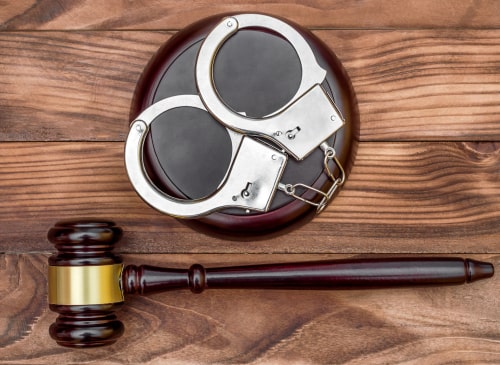 Retail theft, also known as shoplifting, is a serious offense that can have significant legal consequences. In the state of Illinois, the severity of retail theft charges depends on various factors such as the value of the stolen merchandise and any prior convictions. If you are facing retail theft charges, an experienced attorney can help you determine your options for defense.
Retail theft, also known as shoplifting, is a serious offense that can have significant legal consequences. In the state of Illinois, the severity of retail theft charges depends on various factors such as the value of the stolen merchandise and any prior convictions. If you are facing retail theft charges, an experienced attorney can help you determine your options for defense.
Misdemeanor Retail Theft
Under Illinois law, if the value of stolen merchandise is less than $300, retail theft is typically charged as a Class A misdemeanor. This classification applies to most cases where people are caught stealing items from stores.
If convicted of misdemeanor retail theft in Illinois, you may face penalties including:
5 Common Traffic Violations During the Holiday Season
 The holiday season is usually a time of joy, but some people’s celebrations can be affected by the need to deal with traffic tickets. With more people traveling to visit family and friends, attending parties, and shopping for gifts, there are often more cars on the road and more opportunities for traffic violations to occur. Tickets can cause financial difficulties, especially for people who already need to stretch their budgets when buying gifts, and in some cases, they can lead to additional problems due to license suspension. When defending against traffic violations, an experienced attorney can help determine the best course of action that will prevent long-lasting consequences.
The holiday season is usually a time of joy, but some people’s celebrations can be affected by the need to deal with traffic tickets. With more people traveling to visit family and friends, attending parties, and shopping for gifts, there are often more cars on the road and more opportunities for traffic violations to occur. Tickets can cause financial difficulties, especially for people who already need to stretch their budgets when buying gifts, and in some cases, they can lead to additional problems due to license suspension. When defending against traffic violations, an experienced attorney can help determine the best course of action that will prevent long-lasting consequences.
Some of the most common traffic violations that take place during the holidays include:
Speeding
Many of the most common traffic violations during the holiday season involve excessive speeds. Many drivers are in a rush to get to their destinations or complete their holiday errands, leading them to exceed the speed limits. Speeding can put a driver at risk of losing control of their vehicle, but it also endangers other motorists on the road, especially during periods of heavy traffic. People who are driving in unfamiliar areas when taking trips to visit family or go shopping may be unaware of the posted speed limits, and they may end up being ticketed without realizing that they had committed a violation.
What Should I Do if I Am Arrested for DUI During the Holidays?
 The holiday season is a time of joy and celebration. However, it can quickly turn into a nightmare if you find yourself arrested for driving under the influence (DUI). The consequences of a DUI arrest can be severe, including license suspension, fines, and even jail time. If you ever find yourself in this unfortunate situation, it is crucial to know what steps to take to protect your rights and mitigate the potential damage to your personal and professional life. An experienced attorney can provide the legal help you need in these situations, and they will advise you to:
The holiday season is a time of joy and celebration. However, it can quickly turn into a nightmare if you find yourself arrested for driving under the influence (DUI). The consequences of a DUI arrest can be severe, including license suspension, fines, and even jail time. If you ever find yourself in this unfortunate situation, it is crucial to know what steps to take to protect your rights and mitigate the potential damage to your personal and professional life. An experienced attorney can provide the legal help you need in these situations, and they will advise you to:
1. Stay Calm
Being pulled over and questioned by police, asked to take roadside sobriety tests, and arrested on suspicion of driving under the influence can be an overwhelming experience that can create a great deal of anxiety and confusion. It is important to remain as calm as possible throughout the process. Avoid arguing with police officers or resisting arrest, as this may worsen your legal situation.
What You Need to Know About Monitoring Device Driving Permits in Illinois

In Illinois, a Monitoring Device Driving Permit (MDDP) is a special type of driving permit that allows individuals whose driver’s license has been suspended to operate a motor vehicle legally. This permit may be available to qualified individuals in Illinois who have had their license suspended due to a first-offense DUI.
Today, we will discuss who can get an MDDP and the different benefits of this permit. If you want to learn more about your legal rights and options following a driver’s license suspension, contact a driver’s license restatement lawyer.
An MDDP Can Get You Back on the Road Legally
Individuals who are at least 18 years old and have had their driver’s license suspended due to a first-offense DUI conviction are typically eligible for an MDDP in Illinois. You will not qualify for an MDDP if your driver's license was already suspended, revoked, or was otherwise invalid at the time of the DUI arrest. Individuals accused of causing death or bodily harm while driving under the influence and those previously convicted of reckless homicide or aggravated DUI do not qualify for an MDDP.

















